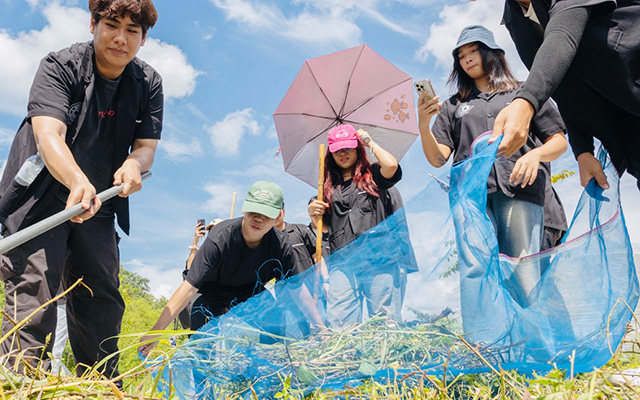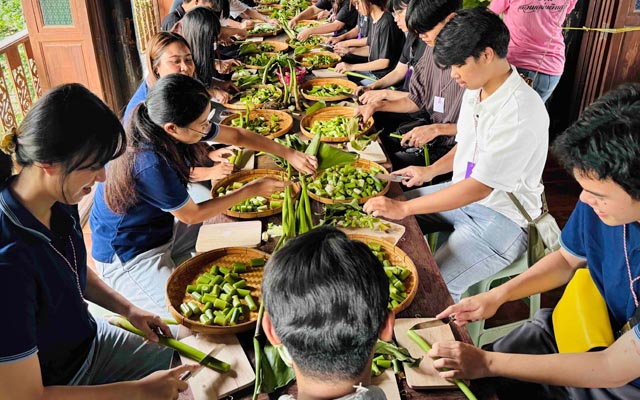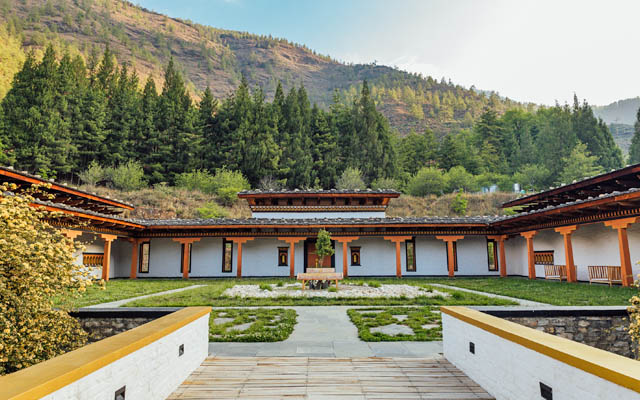Founded 13 years ago with a vision to transform tourism into a tool for community development, Local Alike has long pioneered community-based tourism in Thailand.
Now, Somsak Boonkam, founder and CEO of Local Alike, is inspiring a new generation of young volunteers through specialised voluntourism programmes for Gen Z.

For Somsak, the idea for Local Alike stems from personal experience.
“I grew up in a small village in Roi Et where I saw first-hand the challenges in community tourism. Local people were taken advantage of by the tourism industry, which used them without generating income for the community,” he recalled.
“I wanted to empower local communities to take charge and address this issue. After exploring various models, we developed a concept that combines tourism with community development, ensuring that a significant portion of the profits is reinvested into the community to strengthen its local economy,” he shared.
The idea of Gen Z voluntourism took root when Somsak noticed the enthusiasm of Thai university students for “volunteer camps,” or kai chid asa, a long-standing tradition in Thai education.
“In Thai culture, a volunteer camp is more than just a project; it’s a rite of passage for many students,” Somsak explained, adding that these camps “offer hands-on experience in rural or underserved areas, helping students connect with society while applying their knowledge”.
He recognised that elevating traditional voluntourism trips to align with the specific steps of community development plans could resonate deeply with Gen Z’s socially conscious values.
“By offering structured trips, we provide a platform for them to make a real impact while gaining skills. We use techniques like pre-trip assessments and community-led design to address real issues rather than creating ‘voluntourism’ for the sake of it,” noted Somsak.
For example, in Lampang’s Baan Opphayop community, a recent two-day-one-night camp empowered 150 university students from nearby universities to serve as storytellers, preserving local lore at risk of being lost due to ageing community members.
“These trips go beyond short-term efforts like painting or building. They are designed to help communities develop step-by-step, with voluntourism groups assisting at different stages,” Somsak pointed out.

Communities are treated as the main stakeholders, with the option to decide whether to continue receiving voluntourism groups.
To ensure voluntourism generates meaningful outcomes, Local Alike has adopted an asset-based approach for impact assessment.
“We evaluate changes in community assets – financial, cultural, and educational – resulting from our programmes,” he said.
This includes financial data, surveys, and assessments to gauge whether residents have gained new skills or knowledge, aligning voluntourism efforts with community development goals.
The pilot programme, held in partnership with the Tourism Authority of Thailand (TAT) in September this year, brought over 500 tourism students from eight Thai universities to apply voluntourism efforts in Suphanburi and Lampang.
Local Alike, in partnership with the TAT, aims to expand nationwide and tap into inbound voluntourism, connecting exchange students and international visitors with communities for sustainable development.











